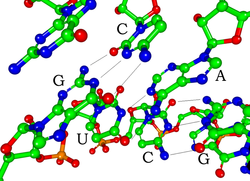
Scientists have uncovered new links between the gut and brain that might lead to better ways of treating depression and anxiety.
The findings could also help reduce digestive problems in babies whose mothers take antidepressants during pregnancy.
The study, published in Gastroenterology, found that increasing serotonin levels in the gut improves anxiety and depression symptoms in mice.
However, the research also revealed that antidepressant use during pregnancy may raise the risk of babies experiencing constipation in their first year of life.
Serotonin is a chemical in the body that helps regulate mood and digestion. While it is commonly known for its role in the brain, most serotonin is actually produced in the gut.
Antidepressants like SSRIs (selective serotonin reuptake inhibitors) work by increasing serotonin levels, but they affect the entire body, not just the brain.
Dr. Kara Margolis, a co-leader of the study, explained that the findings suggest targeting serotonin in the gut alone might be enough to improve mood without causing unwanted side effects like digestive problems.
“If we can direct antidepressants to act only on the gut, it could reduce risks, especially for pregnant women and their babies,” she said.
How the Study Was Conducted
Researchers used mice to explore how serotonin levels in the gut affect both mood and digestion. They removed or blocked the serotonin transporter—a protein that helps regulate serotonin levels—in the gut lining.
In these mice, anxiety and depression symptoms improved without the digestive issues seen in earlier studies where serotonin was increased throughout the entire body.
They also discovered that the gut and brain communicate through the vagus nerve, a key connection between the two systems.
When this nerve was disrupted, the mood benefits from increased gut serotonin disappeared. This suggests that the gut plays a more significant role in mood regulation than previously understood.
In addition to the animal research, scientists studied over 400 mother-child pairs. About one-quarter of the mothers took antidepressants during pregnancy.
Babies exposed to antidepressants in the womb were more likely to experience functional constipation—a common digestive issue—during their first year.
Specifically, 63% of babies whose mothers took antidepressants experienced constipation, compared to 31% of babies whose mothers did not.
The Bigger Picture
Depression and anxiety are widespread mental health conditions, affecting one in five adults in the United States.
Many people with these conditions also experience digestive problems like irritable bowel syndrome (IBS) and constipation, known as disorders of gut-brain interaction (DGBI).
Antidepressants, while helpful, can sometimes worsen these symptoms or cause side effects, especially during early treatment.
Pregnancy adds more challenges. Antidepressants can pass through the placenta and breast milk, potentially affecting the baby.
While untreated depression during pregnancy is dangerous for both the mother and baby, the risks of taking antidepressants during this time are not yet fully understood.
Dr. Margolis emphasized that these findings are not meant to change current medical practices. “Untreated maternal depression poses serious risks,” she said. “Decisions about treatment should be made by mothers and their healthcare providers together.”
New Avenues for Treatment
The study highlights the potential of focusing on the gut epithelium—the thin layer of cells lining the intestines—as a new target for antidepressant treatments.
By limiting the effects of these medications to the gut, it may be possible to avoid side effects like constipation in babies while still providing mood benefits for mothers.
“This research opens the door to safer, more precise treatments for depression and anxiety,” said Dr. Margolis. “We now have evidence that the gut plays a bigger role in mood regulation than we thought, and targeting it directly could be a game-changer.”
Further studies are needed to confirm these findings and explore new treatments, but the research offers hope for more tailored and safer options in the future.
If you care about mental health, please read studies about 6 foods you can eat to improve mental health, and B vitamins could help prevent depression and anxiety.
For more health information, please see recent studies about how dairy foods may influence depression risk, and results showing Omega-3 fats may help reduce depression.
The research findings can be found in Gastroenterology.
Copyright © 2024 Knowridge Science Report. All rights reserved.








Leave a Comment